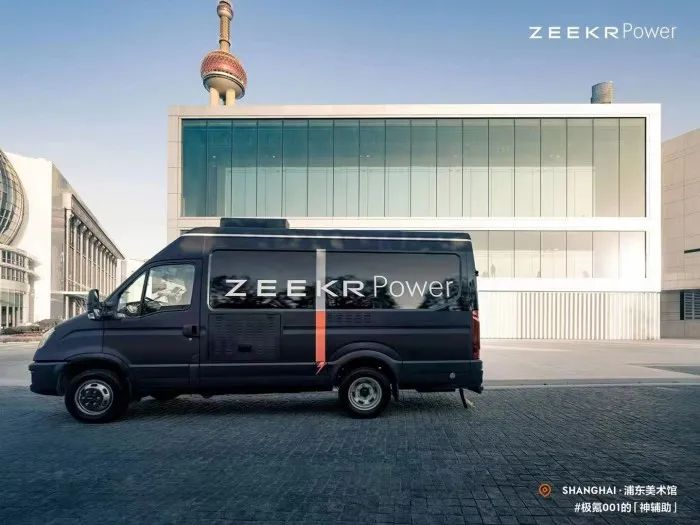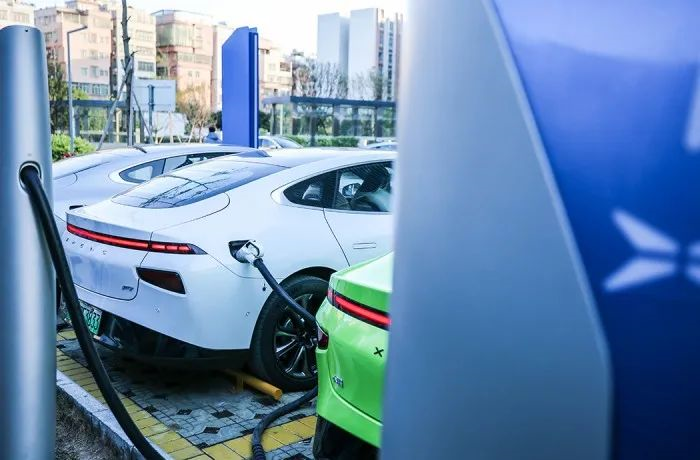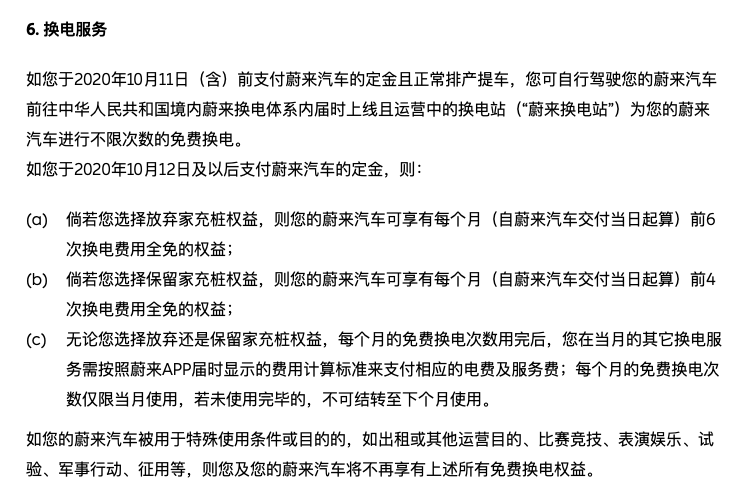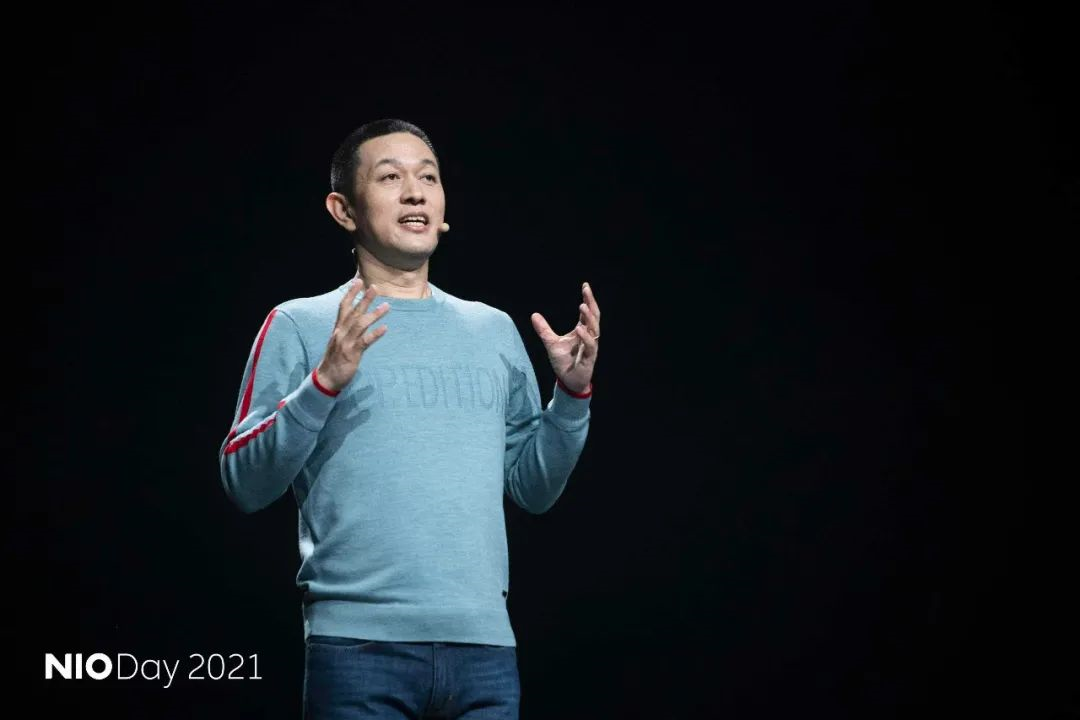On the evening of December 20th, a question was posted on the Zhihu platform: “What do you think of Li Bin, the founder of NIO, who said he did not understand why people still buy gasoline cars?” Within 24 hours, this question received over 2000 answers. The highest attention-grabbing issue on Zhihu that day was the Viva’s tax scandal, which received only 6000+ answers. It is surprising that the king of the EV industry could help share the heat for a celebrity scandal on a social platform.
Regarding Li Bin’s remarks, many experts on Zhihu have given their opinions. Some believed that Li Bin was being too blunt and was a bit too proud of himself, while others thought that he was not wrong, and perhaps walking a fine line could reignite discussion on NIO and the upcoming NIO Day. Of course, some people supported Li Bin’s view.
Li Bin’s statement is just a personal opinion and is not a relevant policy issued by any department nor does it have any impact on our daily life. Why has it caused such a high response on a social platform? I believe this is worth exploring in depth. “I don’t understand why people are still buying gasoline cars” is just a spark that ignites the fanaticism between the “EV advocates” and the “Fuel-vehicle advocates”. The real reason is that this has triggered some people’s long-term accumulated grievances.
There are always positives and negatives in this kind of debate. First, I agree with a point of view that: “Your level of understanding does not represent others, and you can never resonate with everyone.”
Where does the difference in understanding come from? It comes from objective conditions. For example, in our company community, there are people from southern China and northern China, Tesla users, fuel vehicle loyalists, people who were forced to buy an electric vehicle in Beijing but also people who prefer to hold their currency, etc.
Each of us has different objective conditions, resulting in completely different positions, and therefore different perspectives on whether to buy an electric vehicle.
Northern Chinese are deeply affected by weather conditions and have much more to consider when purchasing an EV. Southern users face much better driving conditions.
Tesla users can enjoy Tesla’s supercharger network and NIO users have not only their own charging stations but also battery swap stations, and all EV companies provide private charging stations for their users. Comprehensive infrastructure can greatly improve their experience of using EVs and reduce anxiety. A good user experience is enough to be their reason for supporting EVs.The electric car, as compared to a fuel-powered car, doesn’t emit the odour of gasoline, doesn’t get bothered by engine idle when the driver is waiting with air conditioning on idle, and has lower costs and quicker acceleration. It also saves the owner from the hassle of engine sludge, oil leakage, and gearbox damage. Fuel-powered car enthusiasts certainly appreciate these conveniences, but for most of them, refuelling for three minutes is more convenient than charging for one hour. For long-distance driving or extreme use scenarios, a fuel-powered car is the foolproof choice. We fully understand this view.
For those who have no choice but to buy an electric car, solving charging problems is of utmost importance, and a private charging pile is indispensable. However, the prerequisites for installing a private charging pile are stringent, especially in first-tier cities. First, a fixed property right or long-term parking lease is required, followed by the condition of community power support. Finally, dealing with property management and relevant departments is a must. After going through these procedures, a good charging condition may be obtained. However, for users who live in old communities, many objective conditions cannot satisfy their installation requirements. So, in the face of urgent travel problems and power-supply conditions that cannot be solved, what options do they have?
I once saw on the platform “What’s Worth Buying” that a gentleman spent three months communicating with the property management and relevant departments to solve the problem of installing a private charging pile. In the end, he did it himself. Perhaps this gentleman is a microcosm. Even though the national relevant departments have documents that explicitly state “Properties and communities cannot refuse owners to install private charging piles for any reason,” some people still have to compromise due to practical situations. If they had the choice to use a fuel-powered car for commuting, they wouldn’t suffer with an electric car, would they?
Of course, those who have more favourable conditions need not consider too much, and may even use fuel standards to buy an electric car to improve their travel experience. Among this group, there are many future prime customers and owners. Therefore, some individual views on social platforms have been termed the modern version of “Why not eat meat?.”
When we break down the examples used to justify our own views on electric cars between the electric and fuel-powered factions, we find that it is the common people who are truly emotional, along with the netizens who stand up for them. In this situation where they are not being understood, they naturally want to communicate to clarify.
China has a population of 1.4 billion, but resources are limited.## Translation
Taking Beijing as an example, according to the data from Beijing Traffic Radio, as of 24:00 on March 8th, there were a total of 153,944 valid codes for family new energy electric vehicle applications, and 32,520 families could get the quota on May 26th according to their scores, with a winning rate of about 21.12%. Among the families that received the quota, the family with the highest score was 240 points. Basically, the families with higher scores have three generations participating in the application together. For example, the family with 240 points not only has three generations participating in the draw, but the earliest registration time of its members can be traced back to January 2011. As for the families who reached the “passing line” score of 50, there were as many as 494 households. Looking at the last family to qualify, two generations participated in the draw and the earliest registration time of its members was September 2012.
It is evident that these families made great efforts to obtain an electric vehicle quota, showing how strong their demand for transportation tools is.

At present, only electric vehicle quotas in Beijing are subject to the family lottery policy. Due to the problem of inadequate supporting facilities combined with the policy of protecting new energy vehicle models, there is an abnormal car-buying ecology that forces some people to buy “electric garbage.”
Since the objective conditions cannot provide a good environment for electric vehicles, some people choose to buy a vehicle that can barely meet their transportation needs first, and then take further actions.
Although Shanghai is more relaxed in terms of its new energy policies, owning a private fixed charging station is a prerequisite for buying new energy vehicles. Shanghai’s strategy is a bit like “letting those who are qualified try electric vehicles first.” This is like the most ideal way of teaching each student in accordance with their aptitude. However, we should not refuse them entry because of their lack of “ability,” which is unfair in a sense, and once again raises the barrier for purchasing transportation tools.
Therefore, where there are policies, there are countermeasures. Many people adopt the method of using public charging stations to obtain an entry ticket. However, the actual problem still remains unresolved.
Helping users solve practical problems will bring more opportunities to automakers
Complaining about the problem without solving it is not helpful, especially when electrification has become an irreversible trend. Let’s discuss how we can help more users make up for the lack of objective conditions.
-
Companies can build their own excellent charging systems.
-
Increase the diversity of pure electric products on the market.
 For car companies, building their own energy supplement network is the right choice. By filling the gap in regional infrastructure with the power of the enterprise or providing faster charging speeds to users, the supplement systems of NIO, Xpeng, and Tesla have greatly improved their core competitiveness. New forces such as Ji Ke are also making every effort to layout the infrastructure. However, they also require users to pay a corresponding price. At least for now, the entry-level price for an excellent supplement condition is 149,800 yuan (the price of a Xpeng G3i entry-level version).
For car companies, building their own energy supplement network is the right choice. By filling the gap in regional infrastructure with the power of the enterprise or providing faster charging speeds to users, the supplement systems of NIO, Xpeng, and Tesla have greatly improved their core competitiveness. New forces such as Ji Ke are also making every effort to layout the infrastructure. However, they also require users to pay a corresponding price. At least for now, the entry-level price for an excellent supplement condition is 149,800 yuan (the price of a Xpeng G3i entry-level version).

Whenever a friend asks me which electric car to buy with a budget of over 200,000 yuan, I recommend the Tesla Model 3 and Xpeng P7. Whether you have the conditions to install a private charging station or not, the high prevalence and charging speed of brand-owned supercharging stations can provide users with a good experience. NIO’s battery swapping policy is also very caring. If NIO car owners do not install a private charging station, they can get 6 free battery swapping opportunities every month, and if they install a private charging station, they can get 4 times.

But it is still true that the access threshold for car manufacturers with their own charging network is too high. When driving a traditional brand electric car and encountering a new force charging station with a road lock in the commercial circle underground garage, it is easy to feel lonely. In this regard, some traditional independent brands and joint venture brands need to catch up, and this can also become an opportunity for them to enter the market quickly.
On the other hand, the products that can be purchased for less than 200,000 yuan are not rich enough, and most car companies adopt a high-end strategy after transitioning to electrification, resulting in the recent hot models being within the 300,000 yuan market range. Ignoring the “civilian market” will definitely lead to loss, because being too out of touch with the masses will make people feel “why not enjoy luxuries”. Both new brands and traditional car companies have great open prospects in the 100,000 to 150,000 yuan market.
We should still take Li Bin’s remarks rationally. After all, on the road of building a supplement system for users, NIO has always been a pioneer and a practitioner. Of course, it is also hoped that more car companies can participate and jointly improve the supplement system. By using innovative technology to provide better services for users, electric car users can have a smooth experience in every aspect.
This article is a translation by ChatGPT of a Chinese report from 42HOW. If you have any questions about it, please email bd@42how.com.
